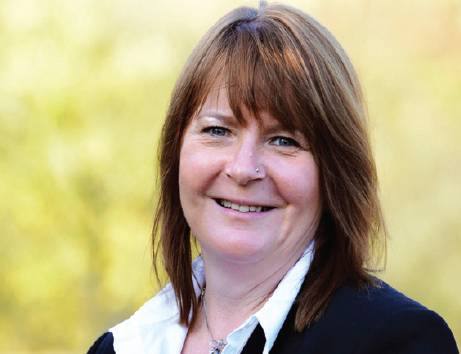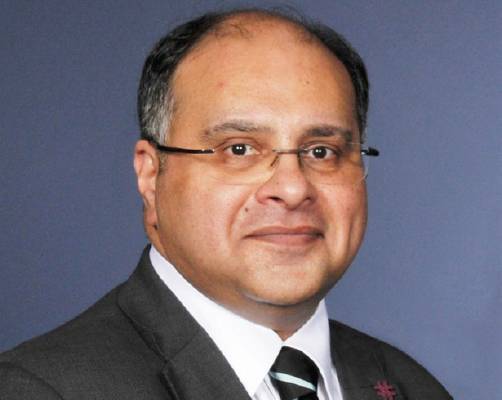News round up
CILEx responds to draft Investigatory Powers Bill
The draft Investigatory Powers Bill may potentially miss the opportunity to protect the confidentiality of communications which should be subject to legal professional privilege, says CILEx: ‘The draft bill applies a ‘onesize- fits-all ’ approach to such sensitive information, which is unsatisfactory and potentially unlawful.’
In addition, CILEx is concerned that the proposed two-stage authorisation process - by the secretary of state and a judicial commissioner - could be easily circumvented. CILEx has called on the government to amend the draft bill.
CILEx president David Edwards said: ‘CILEx believes that legal professional privilege, which ensures that communications between a lawyer and their client remain confidential, should have full protection. Separate codes of practice will not provide adequate safeguards, and without full protection our members are concerned the relationship of trust between lawyer and client could be undermined. Such greater protection would provide reassurance to the public.’
New Financial List unveiled
Details of the new Financial List were unveiled by the Lord Chief Justice Lord Thomas at a briefing event in October. The Financial List will hear complex cases relating to the financial markets where claims are for more than £50 million, or which require particular expertise in, or raise issues of general importance to, the financial markets.
A two-year pilot of a market test case procedure has also begun. This is a procedure to facilitate the resolution of market issues to which immediately relevant authoritative English Law guidance is needed without the need for a present cause of action between the parties to the proceedings.
Lord Thomas said: ‘The new List will provide a more efficient and economical forum for financial dispute resolution using the expertise of dedicated High Court judges. This judge-led reform will enable the development of our law, and through clear and certain law to underpin the financial and other markets, and our nation’s prosperity.
- Further information and briefing on the Financial List is available at: http://tinyurl.com/p4thog6
Labour’s plan for legal aid review
Details of the Labour party’s comprehensive review of legal aid for civil, crime, family and social welfare law were detailed at a summit in November (see also (2015) November CILExJ p5). The meeting to unveil the #Labour4legalaid review was attended by representatives from practitioner groups and legal advice services. Speakers included Opposition leader, Jeremy Corbyn, shadow chancellor John McDonnell and shadow justice secretary Lord Falconer.
Shadow justice minister Lord Bach, who will carry out the review, explained that its purpose is to consider the principles which should be at the heart of the legal aid system; to look at the consequences of the Legal Aid, Sentencing and Punishment of Offenders Act 2012; to develop a credible and principled legal aid policy; and to influence the present government to make changes to existing policies. Shadow solicitor general Karl Turner will work on legal aid and criminal justice issues with the commission.
Lord Bach told the meeting that he will chair a commission of experts, which will invite oral and written evidence before preparing a draft report in April 2016. The final report will be presented at the 2016 Labour party annual conference.
Changes at the police station for 17 year olds
The definition of ‘arrested juvenile’ has been extended to include any person under the age of 18 (Criminal Justice and Courts Act 2015 s42 amends Police and Criminal Evidence Act 1984 s37(15)) . Before the change, an arrested juvenile was anyone under the age of 17.
The extension of the definition to include 17 year olds addresses an anomaly that resulted in children aged over 16 being treated as adults at police stations. It brings the treatment of children at police stations into line with the rest of the criminal justice system.
The amendment will affect all 17 year olds arrested on, or after 26 October 2015. This means that any 17 year old charged with an offence must no longer be kept overnight in a police station and extends the duty to transfer children charged with an offence to local authority accommodation to 17 year olds. This change will ensure that 17 year olds receive the same protection as younger children at the police station.
New Chief Ombudsman appointed by LeO

Kathryn Stone OBE has been appointed Chief Ombudsman for the Legal Ombudsman. Kathryn Stone, who is currently a commissioner for the Independent Police Complaints Commission, will take up her role in January.
Call to modernise violence laws
New rules are needed to tackle violent offences and make better use of court time, says the Law Commission. Reform of offences against the person recommends reforms that would:
- replace the outdated Offences Against the Person Act (OAPA) 1861 with modern, clear and logical legislation;
- create a new offence of ‘aggravated assault’ , to bridge the gap between common assault and the much more serious actual bodily harm; and
- extend the offence of threats to kill to include threats to cause serious injury and threats to rape.
The commission recommends that the OAPA be replaced with modern legislation based on a bill drafted during an earlier Home Office attempt at reform.
Launching the new report, Professor David Ormerod QC, law commissioner for criminal law, said: ‘If implemented, our recommended reforms will produce a clear, modern statutory code to deal with offences of violence. A logical hierarchy of clearly defined offences will allow prosecutors to make more appropriate and efficient use of valuable court time. And properly labelled offences will make sure the true nature of violent behaviour is recognised for what it is.’
Available at: http:// tinyurl.com/nfkmfce
New chairperson for CCUA

Amir AIi, who has been appointed chairperson at the Civil Court Users Association, said that he was both ‘honoured and privileged to have been elected to this position’.